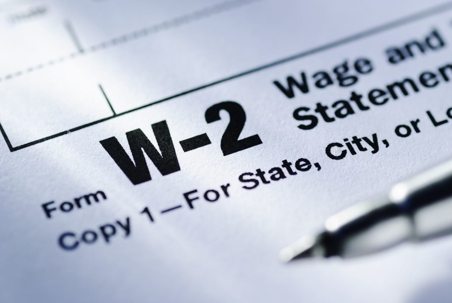No one plans on having tax debt, but it can happen for a variety of reasons. These can include job loss, the death of the household’s primary earner, or incurring medical debt after an accident. When these events occur, savings that were set aside to pay taxes may be used, which can mean filing a tax return with a balance due.
Although tax debt can be an additional challenge in your life, it’s one that you may be able to overcome. By understanding what happens when you can’t pay your entire tax bill and what you can do to alleviate your situation, you can have the necessary knowledge and tools to take action. Keep in mind, however, that having a tax attorney guide you through this situation can give you even greater confidence for the future.
In this article, we’ll explain what happens when you file a tax return but owe debt to the Internal Revenue Service (IRS) and/or the Minnesota Department of Revenue (DOR).
Can I Go to Jail for Not Paying My Taxes?
Before we go further, let’s address a question people in your situation often have: “Can I go to jail for not paying my taxes?”
The short answer to this question is “it’s possible,” but tax evasion is a crime with circumstances different from not having the money to pay your taxes. One of those circumstances is willfully intending to defraud the government by not paying your taxes or filing a fraudulent return to hide your true income. If you didn’t pay your full tax bill because you didn’t have the money to do so, this is a much different situation. If you have any questions about your potential criminal liability, it would be best to speak with an attorney.
What Happens When I Owe Money to the IRS?
If you’ve filed your tax return with the IRS but can’t pay your full tax liability, the collection process begins. You’ll receive a bill from the IRS for the outstanding amount. Accompanying this bill will be a letter demanding full payment and explaining any penalties or interest accrued.
IRS Interest Charges
It’s important to note that an unpaid tax balance accrues compound interest on a daily basis, beginning when the tax return was due (in 2022, that was April 18). This means that your unpaid tax balance grows by a certain percentage one day, and this new amount grows by the same interest rate the next day.
Unfortunately, this also means that the actual amount of money you owe to the IRS can substantially grow over a short period – especially if your original tax liability is significant. The interest rate can also change throughout the year on a quarterly basis.
IRS Late Payment Penalties
In addition to interest, you can expect the IRS to add late payment penalties. For each month you owe a balance on your tax debt, the IRS will add a penalty of 0.05% of the principal balance.
This means that if you’re actively paying off your balance month to month, you should see a reduction in this penalty as long as your overall balance decreases.
What Happens When I Owe Money to the Minnesota DOR?
If you can’t pay your full Minnesota income tax liability when you file your return, the Minnesota Department of Revenue (“DOR”) will assess a 4% late payment penalty on your unpaid tax. Additionally, interest on the total sum of your principal balance and penalties accrues at a rate of 3% (this is the rate for 2022, check the Minnesota DOR’s website for the rate of a different year).
You can expect the Minnesota DOR to send you a bill with an explanation of the unpaid tax, penalties, and interest after filing your tax return.
Can I Be Levied for Collection?
IRS Collection Due Process
With the IRS, you can expect to receive at least two notices stating that the agency intends to levy your assets to collect on your tax debt. You will receive a Notice of Intent to Levy which advises you of your right to a Collection Due Process hearing with the IRS Independent Office of Appeals.
You can request this hearing to dispute the amount of tax debt you owe and discuss alternative arrangements to pay your tax debt. If you choose not to respond to this notice or otherwise not resolve your tax debt with the IRS, it can begin its levy.
Minnesota DOR Collection Due Process
As with the IRS, the Minnesota DOR will send you a demand letter informing you of your tax debt and your right to due process before initiating a levy. The letter will also notify you of how long you have to pay your tax debt before the Minnesota DOR can initiate collection as well as the kinds of collection actions it can take if you fail to settle your tax debt.
You will have the opportunity to respond and can request to stop the levy if you are facing financial hardship.
The Minnesota DOR considers financial hardship to entail an “inability to pay for basic necessities.” These include electricity, food, heat, necessary medication, rent or mortgage, and/or water.
What Are My Options?
Fortunately, you have options to deal with your tax debt with both the IRS and Minnesota DOR. Two of the most commonly used options that both agencies present are installment agreements and offers in compromise.
What Is an Installment Agreement?
An installment agreement is basically a payment plan for your tax debt that you work out with the IRS or Minnesota DOR. Generally speaking, you make monthly installment payments that are based on your ability to pay over time.
The IRS specifically offers both short-term and long-term installment agreements. Short-term agreements must be completed within 180 days, whereas long-term agreements are paid on a monthly basis over a longer period of time.
If you seek an installment agreement with the Minnesota DOR, you must pay a $50 fee. Individual taxpayers and business owners can both request a payment agreement. Once established, the terms of these agreements can’t change, except when the Minnesota DOR cancels a payment agreement. This can happen for reasons such as non-compliance with the payment plan or an improvement in the payer’s financial status.
What Is an Offer In Compromise?
An offer in compromise is an offer made to a tax agency to settle a taxpayer’s debt for less than its full value. In other words, you can pay a lump sum to the IRS or Minnesota DOR, and the remainder of your tax debt is forgiven so long as you remain compliant moving forward with your filing and payment requirements for 5 years after the acceptance of your offer.
Obtaining an offer in compromise is not easy, but it’s also not impossible. The offer you make is calculated based on your ability to pay considering your income and your equity in assets.
With the IRS, those who qualify for an offer in compromise will meet the
- You filed all required tax returns and made all required estimated payments
- You aren’t in an open bankruptcy proceeding
- You have a valid extension for a current year’s return
- If you’re an employer, you’ve made tax deposits for the current and past two quarters
After meeting the basic eligibility requirements, both the IRS and Minnesota DOR will evaluate your ability to pay an offer in compromise, your income, your expenses, and your assets. If your offer is accepted, you must acknowledge the agreement and pay before the date listed in your letter. Once you pay the offered amount, your tax debt is resolved so long as you comply with your tax filing and payment obligations for at least 5 years after the acceptance of your offer.
Who Can Help Me with My Tax Debt?
If you incurred tax debt due to financial hardship, you have options. Our tax attorneys at Kennedy & Ruhsam Law Offices, P.A. understand the challenges our clients are up against in situations similar to yours. Our goal is to help our clients resolve their problems with tax debt by guiding them toward solutions that can work for their unique situations.
No two people experienced unpaid tax challenges the same way. Rest assured that our personalized advice and services can help you work toward achieving a favorable outcome.
This article is not legal advice. If you wish to learn more or schedule a consultation, contact our lawyers at Kennedy & Ruhsam Law Offices, P.A. by calling (651) 369-7749 today.



